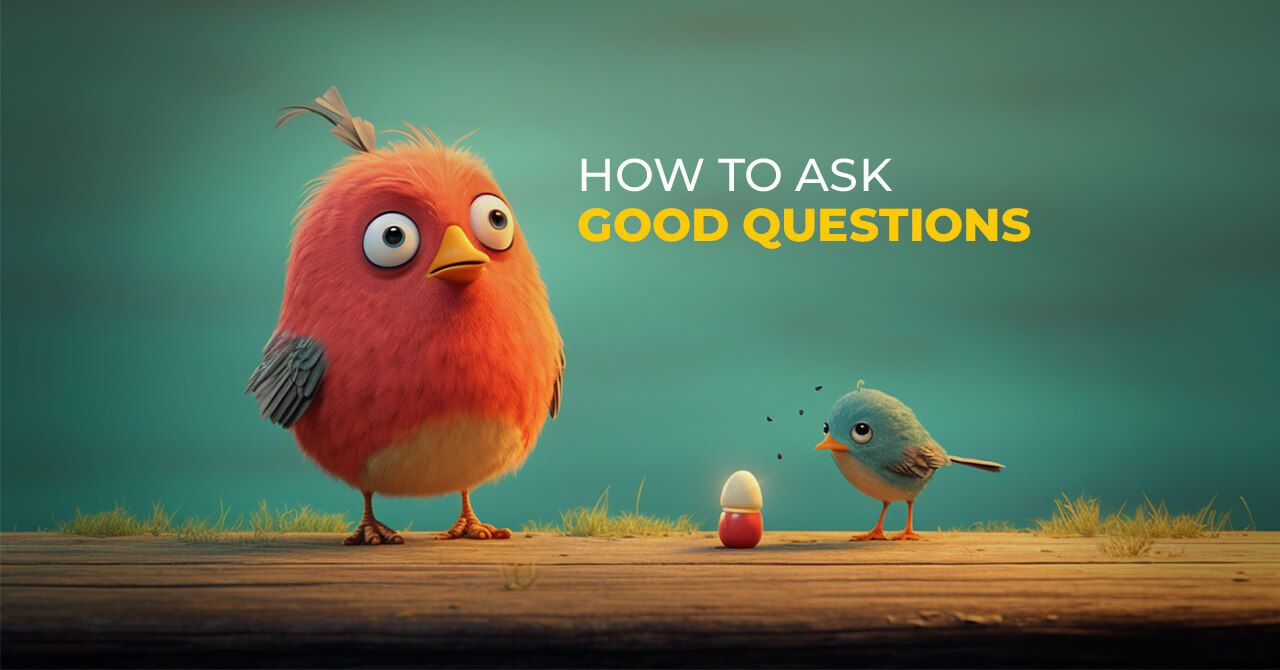
Teach How to Ask Good Questions In Any Language
Small children might not be the savviest students, but we can all still learn valuable lessons from them. Anyone who has ever had a 4-year-old has heard the endless refrains of “What’s this?” or “Why?” or “What for?”
Children at that age don’t yet have the capacity for empathy, but they have already discovered an important tool for exploring another person’s world: Questions. Their curiosity in the pre-kindergarten years compels them to ask hundreds of questions (per day, it seems) to get a better understanding of a world that is slowly taking shape around them.
It is a shame that we, as adults tend to lose that spark. Think about how that could work in a foreign language learning process.
Author Warren Berger wrote a blog post for the Wall Street Journal that drives home this changing dynamic: “Studies show we tend to hit our questioning peak around age 4 or 5, and then ask fewer questions as we get older. Not that we’ve lost the ability to question—we just don’t exercise it as much. Teachers and bosses generally want answers, not questions.”
The importance of asking good questions when learning a language
Asking questions is how you discover your adversary’s desires and pain points. Questions are the tools that allow you to probe and explore reality.
And your student’s reality is exactly the place you need to explore to begin building a vision in their mind so they can begin to make decisions. This is fundamental in order to keep the student focused on the new language.
Of course, there are good ways, and there are bad ways to ask questions. Because we have spent most of our post-kindergarten lives giving answers rather than asking questions, we tend not to ask very good questions anymore. There is a good chance for the teacher to open a discussion in the new language.
We can change that, but it requires you to revert back to a child’s mindset or to at least embrace once again that childlike curiosity. Once your adult mind has a solid model for how this works, you will discover a potent information-gathering tool, and, the best part, students start thinking in the new language avoiding mental translation. We want our students to have straight thinking in the language we are teaching them.
The 4-year-old’s model for asking good questions
Start with this classic example all children ask: “Why is the sky blue?”
First, the way this question is expressed is important. There is no presumption inherent in the question other than the expectation that the listener also sees a blue sky. Contrast the phrasing to, “You know why the sky is blue, don’t you?” and, more important, it is easy to understand in any language.
Just that little indication of presumption rubs listeners the wrong way, even over a topic as innocent as the sky’s color. Also, notice that the child’s question will usually begin with an interrogative word such as “Why,” “What,” or “Who.” Interrogative words invite more thoughtful, more thorough answers to questions.
Look at what happens when you phrase a question with a verb up front:
“Do you have a dollar?”
“Will you be at the conference next week?”
“Is this a good idea?”
All of those can be answered in a single word, probably “yes,” “no,” or “maybe.” One-word answers are not very useful in the discovery phase of language learning.
Therefore, we can say that most good questions have three essential qualities:
- Good questions do not lead or deceive. If the phrasing of your questions suggests you are looking for a specific answer, the other party will contort his or her answer to either conform to that expectation or push back against it.
- Good questions begin with an interrogative word. You probably learned these words in elementary schools as the five Ws: Who, what, when, where, and why. Add “how” to that list, then focus your students on asking questions that begin with those words.
- Good questions are short. The less said, the better. More words add confusion or a layer of perceived expectations as to what the answer should be. Keep the questions as short as possible, and only ask one question at a time.
Bachelor of Communications and Master of Business Administration from Wharton. With more than twenty-five years of professional experience in different sectors of activity in multinational companies

